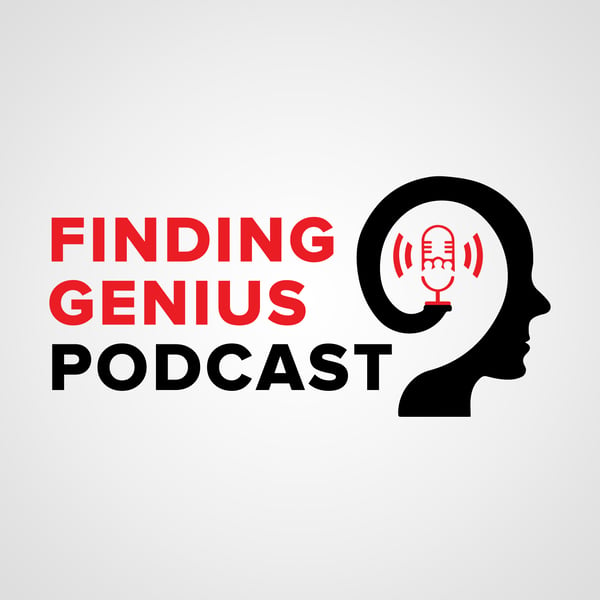Harnessing Python for Research: Scientific Applications of Python with Michael Kennedy
Finding Genius Podcast
Richard Jacobs
4.4 • 1K Ratings
🗓️ 10 March 2021
⏱️ 34 minutes
🧾️ Download transcript
Summary
Still scrabbling with Excel? Consider Python language uses, says programmer and podcaster Michael Kennedy. A general programming language that is easy to use in multiple environments, Python programming is limitless and has numerous open source utilities. He shares how listeners can grab hold of the advantages of Python.
Listen and learn
- Examples of Python uses in industry, from Perseverance on Mars to how well Netflix works across devices,
- How Python and Excel compare and why jumping to Python will take less time than you might think, and
- What are additional Python language benefits and applications and what are helpful resources to learn more.
Programmer Michael Kennedy of the podcasts Talk Python to Me and Python Bytes helps listeners get a jump start on this useful tool for researchers. He gives a fascinating description of the spectrum of its uses, from most AI algorithms and machine learning to YouTube and Netflix's performance across different technologies. But it's also extremely approachable and applicable to the smallest research project.
He adds that often missing from conversations about needing more programmers is how adaptable Python can be for researchers already steeped in their fields. He says that scientists and graduate students can easily learn Python and turn it into their "superpower."
How? Well for starters, there are numerous resources for learning the basic language, which he provides. But the beauty of Python is that while it is easy to learn quickly, it can be complex enough for projects at the highest level. That's why, he says, users often say you can learn it in a weekend and learn it for a lifetime. He also explains other benefits, like the 300,000 external libraries of Python, with prebuilt libraries for every discipline. But even beyond that, there are tools like loadable data structures to utilize to do the kind of analysis you may not be able to program.
Finally, all these tools are free and open source. Intrigued? Listen in for more tips on how to get started with Python.
Episode also available on Apple Podcasts: apple.co/30PvU9C
Transcript
Click on a timestamp to play from that location
| 0:00.0 | For Get Frequently Asked Questions, how about advice from a real genius? |
| 0:07.0 | 95% of people in any profession are good enough to be qualified in license. |
| 0:11.0 | 5%? |
| 0:12.0 | Go above and beyond. |
| 0:13.0 | They become very good at what they do, but only 0.1% are real geniuses. |
| 0:18.0 | Richard Jacobs has made his life's mission to find them for you. |
| 0:22.0 | He hunts down and interviews geniuses in every field. |
| 0:25.0 | Sleep science, cancer, stem cells, ketogenic diets and more. |
| 0:28.0 | Here come the geniuses. |
| 0:30.0 | This is the Finding Genius Podcast that Richard Jacobs. |
| 0:35.0 | Hello, this is Richard Jacobs with the Finding Genius Podcast, |
| 0:40.0 | part of the Finding Genius Foundation. |
| 0:42.0 | Today I have a little bit unusual guest, Michael Kennedy. |
| 0:45.0 | He's the podcast himself. |
| 0:46.0 | He does two different ones. |
| 0:47.0 | And he teaches Python programming and various applications. |
| 0:52.0 | The reason why I had to want to have him on is that, you know, |
| 0:55.0 | in this podcast, I talked to literally thousands of researchers, clinicians, et cetera. |
| 0:59.0 | And Python, at least at first glance, seems to be amenable to any one of the sciences |
| 1:04.0 | that wants to, you know, do some programming and analyze data and things like that. |
| 1:09.0 | So that's why I want Mike to speak to you. |
| 1:11.0 | And we're going to find out how Python can be used, how easy it is, how accessible, et cetera. |
... |
Please login to see the full transcript.
Disclaimer: The podcast and artwork embedded on this page are from Richard Jacobs, and are the property of its owner and not affiliated with or endorsed by Tapesearch.
Generated transcripts are the property of Richard Jacobs and are distributed freely under the Fair Use doctrine. Transcripts generated by Tapesearch are not guaranteed to be accurate.
Copyright © Tapesearch 2025.

